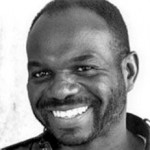When George Clooney accepted his golden man at the Oscars on Sunday, he got some of the night’s loudest applause for patting Hollywood on the back as “the first ones to shout about AIDS when it was just a whisper.” It was a heady endorsement from a man so closely connected to two of the year’s edgiest flicks. But did the mainstream movie industry have it coming?
“I remember Hollywood having its head in the sand about AIDS as much as everybody else,” the Village Voice’s Michael Musto told POZ, describing Clooney’s remarks as “bizarre.” Sean Griffin, a professor at Southern Methodist University (SMU) and coauthor of America on Film: Representing Race, Class, Gender and Sexuality at the Movies, says Hollywood did grapple with AIDS before the general public got serious about it, but at no point were mainstream movies “leading the way” in the entertainment world.
What about Philadelphia? Clooney did not cite any films Sunday night to back up his claim, but the 1993 drama starring Tom Hanks comes to mind as the first “AIDS movie” in the mainstream imagination. That came out more than ten years into the epidemic, however, and way after a string of indy hits, including Parting Glances (1986) and Longtime Companion (1990). “If you remember back to that period,” says Griffin, “certain groups were ready to storm Hollywood due to a lack of AIDS stories.”
Americans were also watching AIDS dramas in their living rooms by then. There was An Early Frost (1985), Go Toward the Light (1988) and The Ryan White Story (1989). And throughout the 80s, a range of soap operas as well as St. Elsewhere, Hill Street Blues, Mr. Belvedere, A Different World and The Golden Girls kept HIV front and center through several of our favorite characters.
A much less controversial idea for Clooney’s acceptance speech might have been congratulating Hollywood for its off-camera contributions to HIV, tipping his hat to the stars responsible for AIDS fundraising and publicity—not for developing cinematic storylines. The sort of work that Sharon Stone and Brangelina do now goes way back, probably to Rock Hudson’s disclosure (and subsequent death) in 1985. Indeed, argues Musto, “That changed the face of the struggle.”
“When one of Hollywood’s own revealed he had AIDS—only because a tabloid was going to out him on it,” he says, “Hollywood did get a lot of fire under its tired britches. Liz Taylor set to work trying to mobilize not only the movie community but the entire world in the fight against AIDS.”
AIDS in Hollywood: Good Night, and Good Luck






Comments
Comments